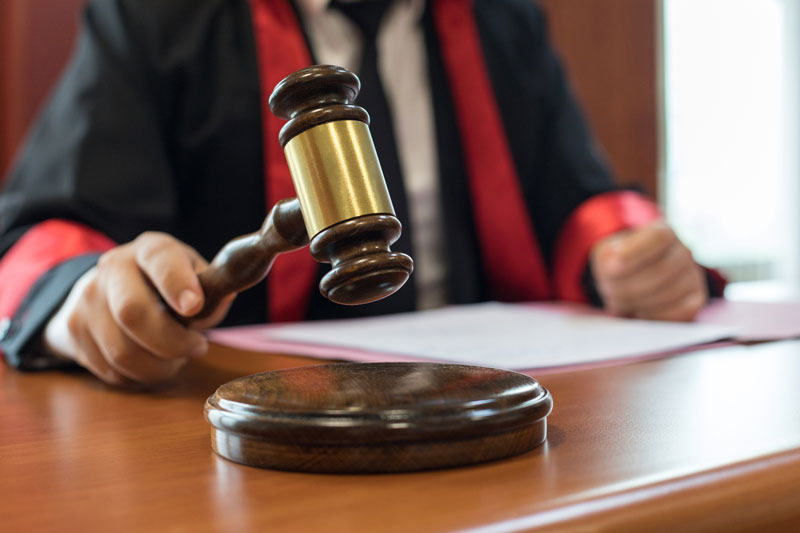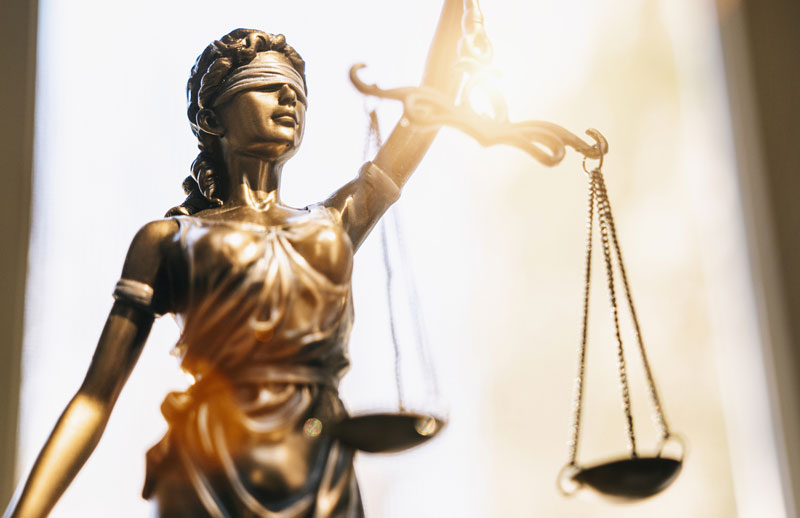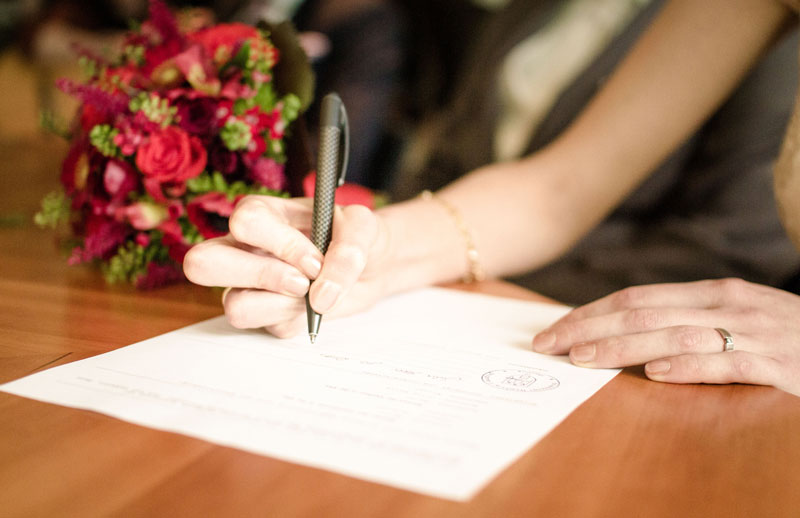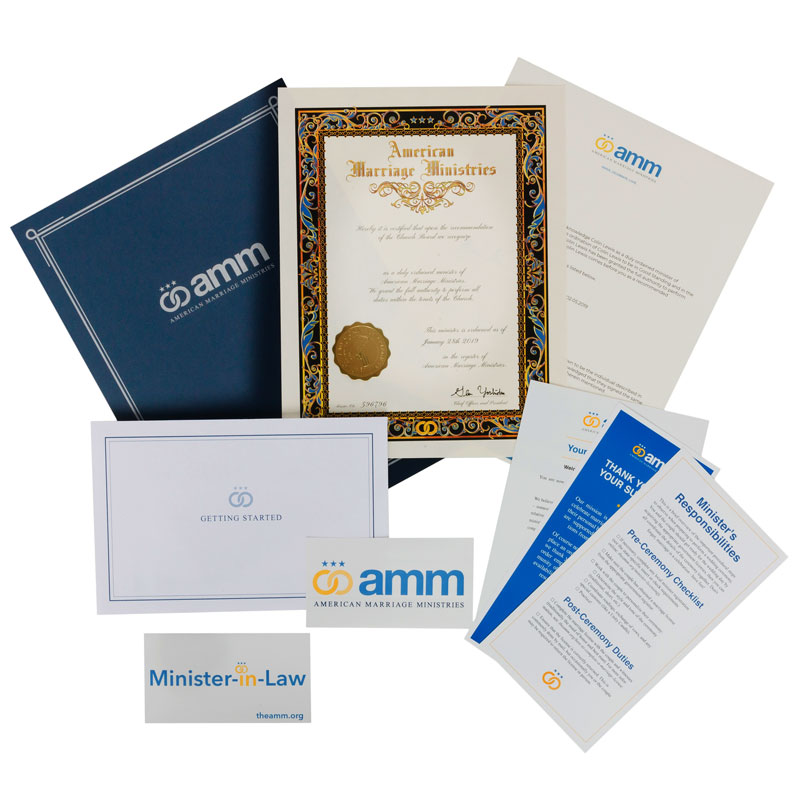Become an Illinois Wedding Officiant with ourFree Online Ordination
If you are considering getting ordained online to officiate weddings in Illinois, then you have come to the right place. The first thing you should know is that it is 100% legal for you to get ordained online in Illinois to officiate weddings. Keep reading to learn more about why online ordinations are legal in Illinois and how you can get ordained to officiate weddings anywhere in the State.
5 Illinois Online Ordination Facts
Who can perform marriage in Illinois?
” (a) A marriage may be solemnized…in accordance with the prescriptions of any religious denomination, Indian Nation or Tribe or Native Group, provided that when such prescriptions require an officiant, the officiant be in good standing with his religious denomination, Indian Nation or Tribe or Native Group. Either the person solemnizing the marriage, or, if no individual acting alone solemnized the marriage, both parties to the marriage, shall complete the marriage certificate form and forward it to the county clerk within 10 days after such marriage is solemnized. ”
Illinois Compiled Statutes § Sec. 209
Does the Illinois government recognize online ordained ministers?
Yes. As clearly stated in the State Law, ministers that were ordained online are no different than ministers ordained by any other means, be it in-person, or through years of seminary study. Ordained means ordained. Period. Get Ordained Now
Are wedding officiants required to register with the Illinois Government?
This may come as a surprise to you, but wedding officiants in Illinois do not have to register with any government office before or after officiating wedding ceremonies. There are no laws in Illinois requiring that officiants register with any government office and there is no government office charged with such a responsibility.
What Illinois government office must the officiant contact before performing marriage?
None. The Illinois government does not have any office that registers, certifies, or licenses wedding officiants. Simply put, at no point in your journey from ordination to officiating are you required to contact or register with any Illinois government office.
What is the minimum age allowed for a wedding officiant in Illinois?
In Illinois all wedding officiants must be at least 18 years old to be able to legally solemnize marriage. Basically, in addition to being an ordained minister, you must also be a legal adult.
How Are Illinois Online Ordinations Legal?

To better understand the legal underpinnings of how online ordinations work in relation to gaining the authority to officiate weddings in Illinois, it is helpful to familiarize yourself with an esoteric legal term, “Solemnization of Marriage”. Solemnization of Marriage is simply a fancy way of saying, “Perform Marriage”, “Conduct a Wedding”, or “Officiate a Wedding”. Solemnize is the official act of conducting a wedding ceremony. This is how the act of performing a wedding ceremony is described in the Illinois Compiled Statutes. Below is the law that specifies who exactly can Solemnize Marriage in Illinois:
Illinois Compiled Statutes § Sec. 209
(a) A marriage may be solemnized by a judge of a court of record, by a retired judge of a court of record, unless the retired judge was removed from office by the Judicial Inquiry Board, except that a retired judge shall not receive any compensation from the State, a county or any unit of local government in return for the solemnization of a marriage and there shall be no effect upon any pension benefits conferred by the Judges Retirement System of Illinois, by a judge of the Court of Claims, by a county clerk in counties having 2,000,000 or more inhabitants, by a public official whose powers include solemnization of marriages, by a mayor or president of a city, village, or incorporated town who is in office on the date of the solemnization, or in accordance with the prescriptions of any religious denomination, Indian Nation or Tribe or Native Group, provided that when such prescriptions require an officiant, the officiant be in good standing with his or her religious denomination, Indian Nation or Tribe or Native Group. Either the person solemnizing the marriage, or, if no individual acting alone solemnized the marriage, both parties to the marriage, shall complete the marriage certificate form and forward it to the county clerk within 10 days after such marriage is solemnized. A mayor or president of a city, village, or incorporated town shall not receive any compensation in return for the solemnization of a marriage. (a-5) Nothing in this Act shall be construed to require any religious denomination or Indian Nation or Tribe or Native Group, or any minister, clergy, or officiant acting as a representative of a religious denomination or Indian Nation or Tribe or Native Group, to solemnize any marriage. Instead, any religious denomination or Indian Nation or Tribe or Native Group, or any minister, clergy, or officiant acting as a representative of a religious denomination or Indian Nation or Tribe or Native Group is free to choose which marriages it will solemnize. Notwithstanding any other law to the contrary, a refusal by a religious denomination or Indian Nation or Tribe or Native Group, or any minister, clergy, or officiant acting as a representative of a religious denomination or Indian Nation or Tribe or Native Group to solemnize any marriage under this Act shall not create or be the basis for any civil, administrative, or criminal penalty, claim, or cause of action. (a-10) No church, mosque, synagogue, temple, nondenominational ministry, interdenominational or ecumenical organization, mission organization, or other organization whose principal purpose is the study, practice, or advancement of religion is required to provide religious facilities for the solemnization ceremony or celebration associated with the solemnization ceremony of a marriage if the solemnization ceremony or celebration associated with the solemnization ceremony is in violation of its religious beliefs. An entity identified in this subsection (a-10) shall be immune from any civil, administrative, criminal penalty, claim, or cause of action based on its refusal to provide religious facilities for the solemnization ceremony or celebration associated with the solemnization ceremony of a marriage if the solemnization ceremony or celebration associated with the solemnization ceremony is in violation of its religious beliefs. As used in this subsection (a-10), “religious facilities” means sanctuaries, parish halls, fellowship halls, and similar facilities. “Religious facilities” does not include facilities such as businesses, health care facilities, educational facilities, or social service agencies. (b) The solemnization of the marriage is not invalidated: (1) by the fact that the person solemnizing the marriage was not legally qualified to solemnize it, if a reasonable person would believe the person solemnizing the marriage to be so qualified; or (2) by the fact that the marriage was inadvertently solemnized in a county in Illinois other than the county where the license was issued and filed. (c) Any marriage that meets the requirements of this Section shall be presumed valid.
Illinois Compiled Statutes § Sec. 209 Explained
If this law looks like an indecipherable wall of text, don’t worry. Let’s focus in on the part that is relevant to you.
“(a) A marriage may be solemnized by…in accordance with the prescriptions of any religious denomination, Indian Nation or Tribe or Native Group…”
This law allows for people of any religious faith to self actualize their ability to officiate wedding ceremonies. Beyond being articulated in the Illinois Compiled Statutes, this right is also enshrined in the 1st amendment of the US Constitution:
“Congress shall make no law respecting an establishment of religion, or prohibiting the free exercise thereof; or abridging the freedom of speech, or of the press; or the right of the people peaceably to assemble, and to petition the Government for a redress of grievances.”
We hope this better explains the legal foundation for why you absolutely have the right to officiate wedding ceremonies in Illinois as an online ordained minister. As long as you are a member of any religious institution that grants you the authority to solemnize marriage, you are good to go. So what are you waiting for?
Illinois Officiant Government Registration

We said it before but it bears repeating – In Illinois, wedding officiants are not required to register with any government office. The government in Illinois does not impose any officiant registration process whatsoever. At no point in your journey from getting ordained to officiating the wedding ceremony are you required to complete government paperwork confirming your status as a wedding officiant. Once you are an online ordained minister you instantly have the legal ability to perform marriage anywhere in Illinois.
Though there is no legal requirement to prove your standing as an Ordained Minister with any Illinois government office, we do recommend that you keep personal records of your official Ministry Credentials. A physical copy of your Ordination Certification is useful to have in the event that the couple or anyone else affiliated with the wedding asks to see proof of your ordination.
If you choose to get ordained with American Marriage Ministries, consider ordering one of the following packages. In addition to your official ordination certificate you will also receive your “AMM Minister’s Manual” and “Asked To Officiate“. Both of these books cover all of the important information you need to know regarding your legal duties as a wedding officiant and your ceremonial responsibilities, including how to best prepare for the ceremony.
How Do I Prepare For Officiating Weddings in Illinois?

Getting ordained is just the first step. The bulk of your time and energy will be taken up in preparing for the wedding ceremony. We know that conducting a wedding ceremony is a big responsibility. And though it is a joyous experience it is also one that needs to be taken very seriously, especially for your role as the wedding officiant.
We will walk you through the process from both the legal and ceremonial aspects of your role as the wedding officiant. Check out our page How To Officiate Weddings to get started. Here we cover the important things that you as the officiant need to do, such as how to best prepare for officiating a wedding ceremony and Writing the Wedding Ceremony. For more information, we encourage you to visit the official American Marriage Ministries website. There you will find the most comprehensive officiant training materials you can find online.
Many of the people that get ordained online have never officiated a wedding before. We know that this can seem intimidating and have anticipated your need to understand the entire process. Our mission is to empower you not just to officiate weddings, but to do so with skill, confidence, and dare we say, a bit of style.
Officiating a wedding in Illinois can be broken down into two responsibilities. These are:
- Non-Legal Duty – Officiating the Wedding Ceremony
- Legal Duty – Signing the Marriage License
To learn more about preparing for the wedding ceremony, including how to write a wedding ceremony script, check out the Officiant Training on the American Marriage Ministries website. Keep reading to learn more about the officiant’s legal responsibilities regarding the marriage license.
Illinois Wedding Officiant Legal Responsibilities

Your one legal responsibility as a wedding officiant in Illinois is to sign the marriage license for the couple. This is a simple bureaucratic process that is really no different than signing any other type of legal contract.
However since it is not every day that you fill out marriage licenses, you may find some of the fields confusing at first glance. We have deconstructed the process of completing a marriage license into easy-to-follow instructions in case you find something confusing along the way. We understand how important it is to get this right, so keep reading for instructions on how to complete an Illinois marriage license.
How To Fill Out an Illinois Marriage License
It is your responsibility as the wedding officiant to sign the marriage license on the wedding day. We have broken this duty down into four simple steps:
- Ask the couple to present their marriage license.
- Confirm that the marriage license is valid.
- Complete and sign the marriage license.
- Return the Marriage License.
STEP 1 – ASK THE COUPLE TO PRESENT THEIR MARRIAGE LICENSE
At some point on the wedding day, you need to ask the couple to present their marriage license. Generally this happens immediately following the ceremony while everyone heads out to the reception. Though this doesn’t have to be the case, as the marriage license can be completed at any time on the wedding day before or after the ceremony.
STEP 2 – CONFIRM THAT THE MARRIAGE LICENSE IS VALID
Before you start filling out the marriage license you need to confirm that it is currently valid. A marriage license’s validity is determined by three laws that specify the marriage license waiting period, expiration, and return. If you need further clarification on what these terms mean, there is a good explanation here. The information below outlines the waiting period, expiration, and return for Illinois marriage licenses:
- REQUIRED WITNESSES: None
- WAITING PERIOD: 1 Day Before Completing
- EXPIRATION: 60 Days
- RETURN: Within 10 Days after the Wedding
In practice, verifying the validity of the marriage license is usually a formality. Most couples file for their marriage license a week or two before the ceremony date, in which case the marriage license, according to state law, is valid.
STEP 3 – COMPLETE AND SIGN THE MARRIAGE LICENSE
This is where the pen finally meets the paper. As the officiant you need to fill out your portion of the marriage license. When done, you must sign it with the couple and two adult witnesses (they are also required to sign the marriage license).
If you are not sure how to fill out certain fields on the marriage license, do not worry. Below are the most common questions people have regarding filling out a marriage license. The marriage license you will be completing may not have all of these fields.
OFFICIANT TITLE ON MARRIAGE LICENSE
For officiant title, enter“Minister”. If you are an AMM ordained minister, then that is what you put for your title.
CHURCH NAME ON MARRIAGE LICENSE
For church name, enter“American Marriage Ministries”. That is unless, you got ordained through a different organization, in which case enter the name of that organization.
RELIGIOUS DENOMINATION ON MARRIAGE LICENSE
For religious denomination, enter “Non-Denominational” unless you are officiating the wedding according to a specific religious tradition. If so, then enter that.
CEREMONY TYPE ON MARRIAGE LICENSE
For ceremony type, enter “Religious”. It is important to understand, even if you officiated a completely non-religious ceremony you still need to enter “Religious”. The reason for this is that the designation “Religious” and “Civil” mean something different to the Illinois Government. Civil is a designation for government officials. Everything else is considered religious, even if you invoke no religious references in your wedding ceremony.
STEP 4 – RETURN THE MARRIAGE LICENSE
After the marriage license is completed it must be returned to its issuance office. This is usually the responsibility of the couple though it is a good practice as the officiant to follow-up with the couple to make sure that the completed marriage license has been returned. As this is generally done through the mail, it is an easy thing to do and we recommend that it be done ASAP after the wedding.
If you are unclear on where or how to return the marriage license, the couple should know. When the couple receives their marriage license they also receive specific instructions on how to return the marriage license. If these instructions are not included with the marriage license, you can call the issuance office or visit their website for further clarification.
Illinois Online Ordination City Guides
Thanks for reading and go get your officiating on! To learn more about getting ordained online and how to officiate weddings, check out American Marriage Ministries.






